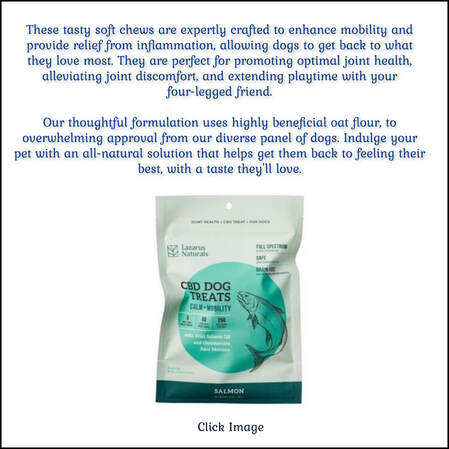|
What is Cetyl Myristoleate?
BY VCAHospitals Cetyl myristoleate (CM) is an ester (a compound produced by the reaction between an acid and an alcohol) of a fatty acid (myristoleic acid). It is commonly found in fish oils, dairy products, butter, and animal fat. It was first isolated in 1994 from Swiss Albino mice found to be immune to the induction of polyarthritis (arthritis of multiple joints). Most commercial versions of cetyl myristoleate are now synthetic and not of animal origin. The mechanism of action of cetyl myristoleate is unknown but may be similar to that of omega-3 fatty acids (see handout on Fish Oil). Why recommend administration of cetyl myristoleate? Cetyl myristoleate is recommended to treat osteoarthritis in dogs. While a recent review article asserts cetyl myristoleate is ineffective at relieving arthritic pain in humans, a 1997 randomized study reported in the Townsend letter claims improvement in over sixty percent of patients who applied the oil topically on an as needed basis to relieve refractory arthritis pain, compared to about 15 percent of patients using a placebo. A more rigorous study in the Journal of Rheumatology in 2002 reported significant improvements compared to a placebo in the range of motion of arthritic knees in human patients treated orally with cetyl myristoleate. In a 2003 Pharmacological Research study, a modest but discernible improvement in pain and a reduced incidence of arthritis in mice was also demonstrated following either injection or oral use of the supplement. |
|
How much experience is there with the use of cetyl myristoleate in pets?
Cetyl myristoleate has been used for about 10 years in treating dogs with osteoarthritis. What species of animals are being treated regularly with cetyl myristoleate? Dogs are the pets most commonly treated for osteoarthritis. How can my pet benefit from cetyl myristoleate? "...treatment with cetyl myristoleate may relieve pain, improve mobility and increase range of motion." For dogs with osteoarthritis, treatment with cetyl myristoleate may relieve pain, improve mobility and increase range of motion. How successful is cetyl myristoleate? Treatment with cetyl myristoleate appears to be successful in many dogs with osteoarthritis. As is true with many joint supplements, results are usually better the earlier therapy is started. Veterinarians using available commercial products containing CM alone and products containing CM in combination with other supplements (such as glucosamine, MSM, and other herbs and antioxidants) have reported success in dogs with osteoarthritis. |
How safe is cetyl myristoleate?
There does not appear to be any side effects associated with the use of cetyl myristoleate. A small number of patients may exhibit mild gastrointestinal upset (that could result in nausea, vomiting, and/or diarrhea) which resolves upon cessation of treatment.
Where do I obtain cetyl myristoleate and do I need a prescription?
Pet owners are cautioned against buying supplements without knowledge of the manufacturer, as supplements are not highly regulated and some supplements may not contain the labeled amount of ingredients. Your veterinarian may have preferred supplements that he or she will recommend. A prescription is not needed for cetyl myristoleate supplements.
This client information sheet is based on material written by: Steve Marsden, DVM ND MSOM LAc DiplCH AHG, Shawn Messonnier, DVM and Cheryl Yuill, DVM, MSc, CVH
There does not appear to be any side effects associated with the use of cetyl myristoleate. A small number of patients may exhibit mild gastrointestinal upset (that could result in nausea, vomiting, and/or diarrhea) which resolves upon cessation of treatment.
Where do I obtain cetyl myristoleate and do I need a prescription?
Pet owners are cautioned against buying supplements without knowledge of the manufacturer, as supplements are not highly regulated and some supplements may not contain the labeled amount of ingredients. Your veterinarian may have preferred supplements that he or she will recommend. A prescription is not needed for cetyl myristoleate supplements.
This client information sheet is based on material written by: Steve Marsden, DVM ND MSOM LAc DiplCH AHG, Shawn Messonnier, DVM and Cheryl Yuill, DVM, MSc, CVH
**Canine Arthritis And Joint is intended for informational, educational and entertainment purposes only and is not a substitute for medical advice, diagnosis or treatment. Do not attempt to self-diagnose or treat any health condition. You should always consult with a healthcare professional before starting any diet, exercise or supplementation program, before taking any medication, or if you have or suspect your pet might have a health problem. The opinions expressed by Canine Arthritis And Joint are not to be replaced for medical care. This website and the information contained herein have not been evaluated by the Food and Drug Administration. The information and opinions on Canine Arthritis And Joint are not intended and cannot be used to diagnose, treat, cure, or prevent any disease. This applies to people and pets!
This site uses affiliate links such as banners you may see that allows for paid commissions.
This site uses affiliate links such as banners you may see that allows for paid commissions.
Canine Arthritis And Joint © Copyright 2015-2024
Designed By Paw Prints Web Design
Designed By Paw Prints Web Design







